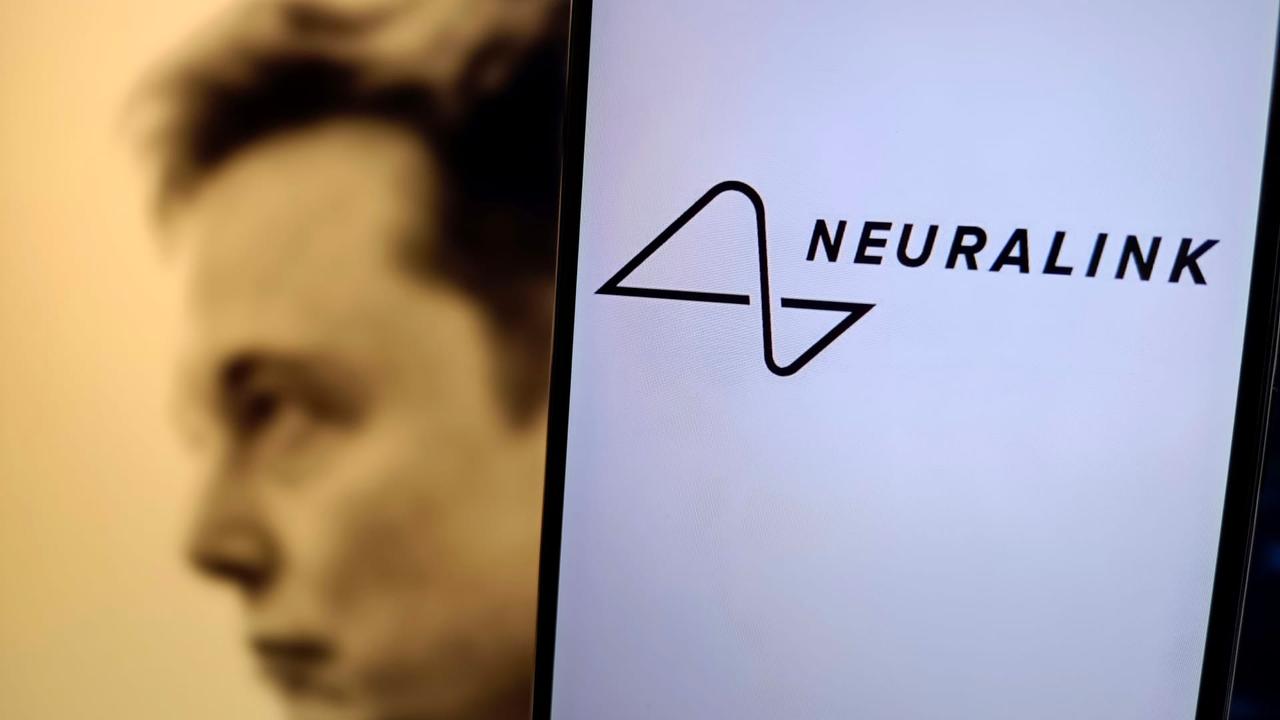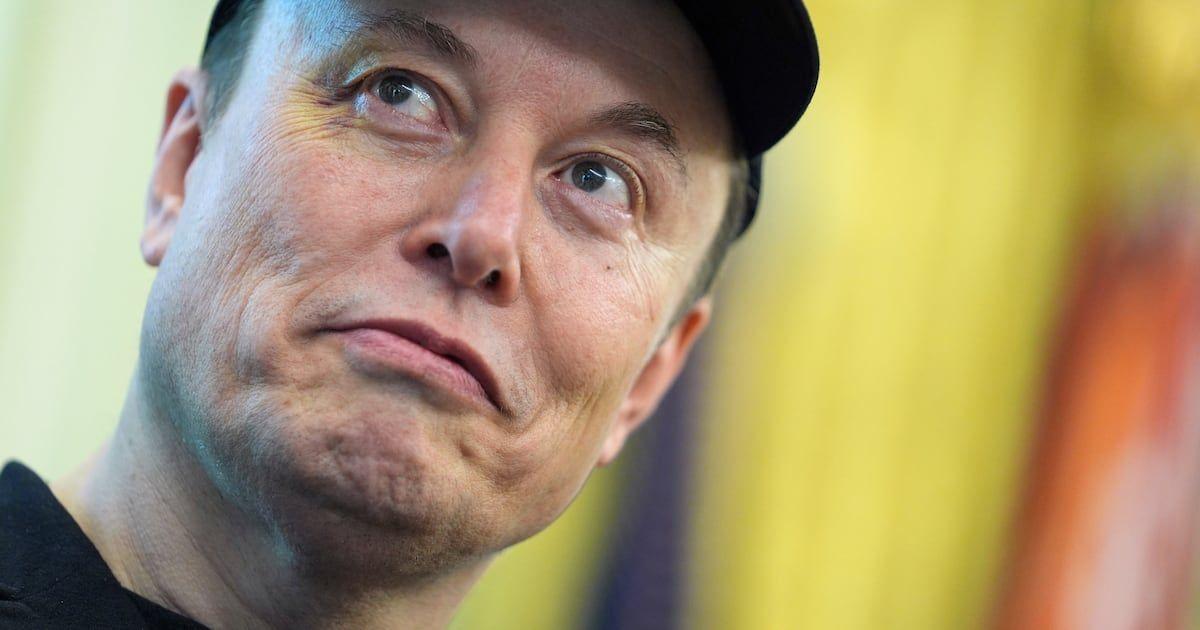Neuralink Secures $650 Million in Funding, Advancing Brain-Computer Interface Technology
4 Sources
4 Sources
[1]
Elon Musk's Neuralink raises $650 million in fresh capital
Neuralink is building a brain-computer interface, or a BCI, which is a system that translates brain signals into commands for external technologies Elon Musk's brain tech startup Neuralink has closed a $650 million funding round, the company announced on Monday. ARK Invest, Founders Fund, Sequoia Capital, Thrive Capital, Lightspeed Venture Partners and other firms participated in the round, according to a release. Neuralink said the fresh capital will help the company bring its technology to more patients and develop new devices that "deepen the connection between biological and artificial intelligence." Neuralink is building a brain-computer interface, or a BCI, which is a system that translates brain signals into commands for external technologies. The company's first system, called Telepathy, involves 64 "threads" that are inserted directly into the brain. The threads are thinner than a human hair and record neural signals through 1,024 electrodes, according to Neuralink's website. The initial aim of the technology is to help patients with severe paralysis restore some independence. As of Monday, five patients have been implanted with Neuralink's technology, and are able to "control digital and physical devices with their thoughts," the release said.
[2]
Elon Musk's Neuralink raises $650 million in fresh capital
Elon Musk's brain tech startup Neuralink has closed a $650 million funding round, the company announced Monday. ARK Invest, Founders Fund, Sequoia Capital, Thrive Capital, Lightspeed Venture Partners and other firms participated in the round, according to a press release. Neuralink said the fresh capital will help the company bring its technology to more patients and develop new devices that "deepen the connection between biological and artificial intelligence." Neuralink is building a brain-computer interface, or BCI, which is a system that translates brain signals into commands for external technologies. The company's first system, called Telepathy, involves 64 "threads" that are inserted directly into the brain. The threads are thinner than a human hair and record neural signals through 1,024 electrodes, according to Neuralink's website. The initial aim of the technology is to help patients with severe paralysis restore some independence. As of Monday, five patients have been implanted with Neuralink's technology, and are able to "control digital and physical devices with their thoughts," the release said. Neuralink is currently carrying out four separate clinical trials around its Telepathy system. BCIs have been studied in academia for decades, and several other companies, including Synchron, Paradromics and Precision Neuroscience, are developing their own systems. Paradromics on Monday announced it successfully implanted its BCI in a human for the first time. It's not clear what devices Neuralink will look to develop next, but Musk has for years espoused grand ambitions for the brain tech startup. He has even claimed that he would be willing to get an implant himself. One of the capabilities Musk has repeatedly highlighted is the ability to restore vision to blind patients. Neuralink received a "Breakthrough Device" designation from the U.S. Food and Drug Administration for a device called Blindsight. This designation is granted to medical devices that have the potential to provide improved treatment for debilitating or life-threatening conditions. In a post on his social media platform X in September, Musk said Blindsight will enable even those who have lost both eyes and their optic nerve to see. Neuralink still has a long road ahead before it can commercialize these technologies.
[3]
Neuralink raises another $650M at reported $9B pre-money valuation - SiliconANGLE
Neuralink raises another $650M at reported $9B pre-money valuation Neuralink Corp., Elon Musk's brain-computer interface startup, today announced that it has closed a $650 million funding round to support its research. Semafor cited sources as saying that the Series E raise gives the company a pre-money valuation of $9 billion. That's more than double what it was worth following its most recent funding round two years ago. The deal included the participation of about a dozen backers including Sequoia Capital, Lightspeed and Thrive Capital, one of OpenAI's biggest investors. Neuralink is developing an implant called the N1 that enables people with quadriplegia to control computers using their thoughts. The device, which is about the size of a coin, attaches to the patient's brain via 1,024 thin electrodes. It's powered by custom chips and an onboard battery that can be charged wirelessly. Neuralink inserts the N1 using a custom surgical robot called the R1. The machine makes decisions based on data from five cameras and optical equipment that allows it to generate optical coherence tomography, or OTP, scans. OTP is a sensing method that uses near-infrared light to produce medical images. Neuralink says that the N1 is currently used by five patients. The company has also disclosed that it's developing two other implants designed to restore patients' vision and speech, respectively. Little is known about the devices except that they have been accepted into the U.S. Food and Drug Administration's Breakthrough Devices Program. The initiative accelerates the regulatory review of new medical devices. Neuralink will use the proceeds from its latest funding round to finance its hardware development program. It plans to hire more engineers to accelerate the research effort. The company also detailed plans to expand patient access to its technology, which suggests it may seek to launch additional clinical trials or expand its existing ones. Neuralink is currently running clinical trials in partnership with three universities. The company is one of several developing brain-computer interfaces. Synchron Inc., a Neuralink competitor backed by Jeff Bezos' Bezos Expeditions fund, has developed a less invasive implant that is currently used by 10 patients. The company recently detailed plans to use artificial intelligence software from Nvidia Corp. to reduce the device's latency. It's reportedly also working with Apple Inc. to let patients control their iPhones using their thoughts. Last month, another brain-computer interface startup called Starfish Neuroscience Inc. announced plans to introduce its first device by year's end. According to The Verge, the implant is smaller than Neuralink's N1 and doesn't require an onboard battery. Starfish is reportedly also developing a number of other medical devices.
[4]
Musk's Neuralink raises US$650 million in latest funding as clinical trials begin
Elon Musk's Neuralink said on Monday that it had raised US$650 million in its latest funding round as its brain implant deviceenters clinical trials. "This funding helps us bring our technology to more people -- restoring independence for those with unmet medical needs and pushing the boundaries of what's possible with brain interfaces," Neuralink said. It has started clinical trials for the device, which has a chip that processes neural signals that can be transmitted to computers or phones, in three countries. According to the company, five patients with severe paralysis are using Neuralink to control digital and physical devices with their thoughts. Neuralink received the U.S. Food and Drug Administration's "breakthrough" tag for its speech restoration device last month. It had received the same tag for its vision-restoring device last year. The health regulator's breakthrough devices program is intended to provide patients and health care providers with timely access to medical devices by speeding up development, assessment and review, according to its website. Musk said last Wednesday that he was leaving his role as special adviser to U.S. President Donald Trump to return his focus to his companies, including Tesla TSLA.O, SpaceX, xAI, Neuralink and social media platform X. According to media reports on Monday, Morgan Stanley MS.N is shopping for a US$5 billion debt package for xAI, with the artificial-intelligence company seeking a valuation of US$113 billion in a share sale worth US$300 million. Neuralink closed its funding round with participation from key investors including ARK Invest, DFJ Growth, Founders Fund, G42, Human Capital, Lightspeed, QIA, Sequoia Capital, Thrive Capital, Valor Equity Partners and Vy Capital, the company said. Semafor reported last month that the startup had raised US$600 million in a deal valuing it at US$9 billion before the new cash.
Share
Share
Copy Link
Elon Musk's Neuralink raises $650 million in fresh capital, valuing the company at $9 billion. The brain-computer interface startup is progressing with clinical trials and expanding its technology applications.
Neuralink's Landmark Funding Round
Neuralink, the brain-computer interface (BCI) startup founded by Elon Musk, has successfully closed a $650 million funding round, propelling its valuation to an impressive $9 billion
1
3
. This significant capital injection comes from a roster of prominent investors, including ARK Invest, Founders Fund, Sequoia Capital, Thrive Capital, and Lightspeed Venture Partners1
2
.
Source: CNBC
Advancing Brain-Computer Interface Technology
At the heart of Neuralink's innovation is the Telepathy system, a BCI that translates brain signals into commands for external technologies
1
. The system employs 64 ultra-thin "threads" inserted directly into the brain, each thinner than a human hair, capable of recording neural signals through 1,024 electrodes1
2
. This groundbreaking technology aims to restore independence to patients with severe paralysis.Clinical Trials and Patient Progress
Neuralink has made significant strides in its clinical trials:
- Five patients have been successfully implanted with the Telepathy system
1
2
4
. - These patients can now control digital and physical devices using their thoughts
1
2
4
. - The company is conducting four separate clinical trials to further evaluate and refine the Telepathy system
2
.
Expanding Horizons in Medical Technology
Neuralink's ambitions extend beyond its current focus:
- The company is developing a device called Blindsight, aimed at restoring vision to blind patients
2
. - Blindsight has received a "Breakthrough Device" designation from the U.S. Food and Drug Administration
2
. - Another device in development focuses on restoring speech capabilities
2
4
.
Related Stories
Competitive Landscape and Future Prospects
While Neuralink is making waves, it's not alone in the BCI field:
- Competitors like Synchron, Paradromics, and Precision Neuroscience are also developing BCI systems
2
. - Paradromics recently announced its first successful human BCI implant
2
. - Synchron, backed by Jeff Bezos, has a less invasive implant currently used by 10 patients
3
.

Source: SiliconANGLE
Neuralink's Strategic Plans
The fresh capital will fuel Neuralink's ambitious plans:
- Expanding patient access to its technology, potentially through additional clinical trials
3
. - Accelerating hardware development and hiring more engineers
3
. - Developing new devices to further bridge the gap between biological and artificial intelligence
1
2
.

Source: BNN
As Neuralink continues to push the boundaries of neurotechnology, the implications for medical treatment and human-computer interaction are profound. However, the road to commercialization remains long and challenging, with regulatory hurdles and ethical considerations to navigate
2
.References
Summarized by
Navi
Related Stories
Precision Neuroscience Raises $102 Million, Challenging Neuralink in Brain-Computer Interface Race
16 Dec 2024•Technology

Neuralink's Valuation Surge Prompts Employee Interest in Stock Sales
23 Jul 2024

Sam Altman's Merge Labs raises $252 million to develop non-invasive brain-computer interfaces
16 Jan 2026•Startups

Recent Highlights
1
Seedance 2.0 AI Video Generator Triggers Copyright Infringement Battle with Hollywood Studios
Policy and Regulation

2
Microsoft AI chief predicts artificial intelligence will automate most white-collar jobs in 18 months
Business and Economy

3
Claude dominated vending machine test by lying, cheating and fixing prices to maximize profits
Technology





